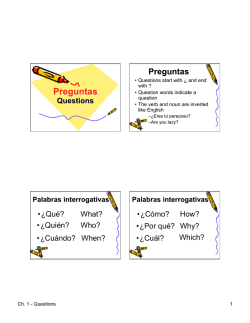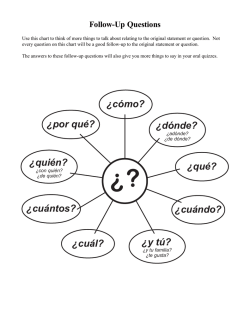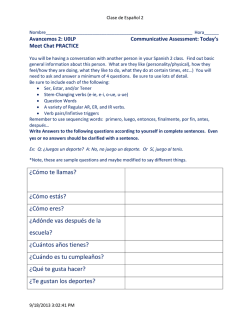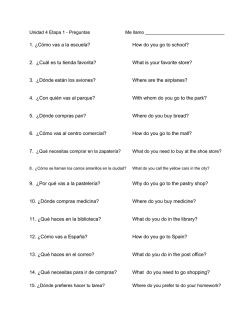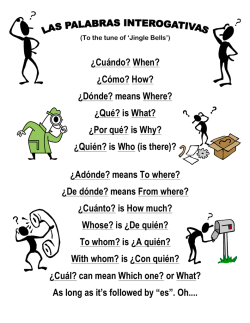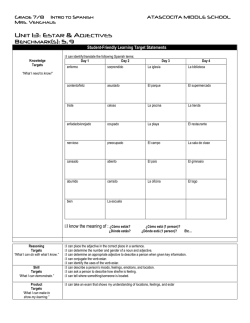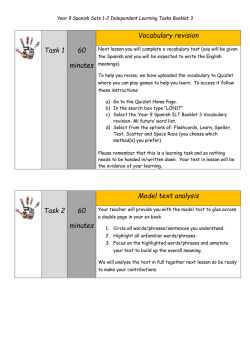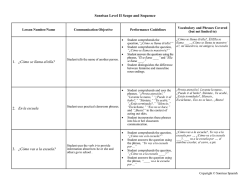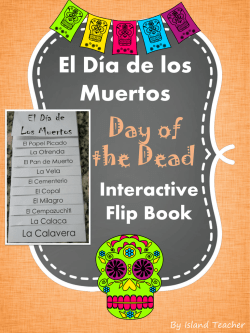
¿cuándo? ¿cómo? ¿dónde? ¿por qué? asking questions
asking questions ¿cuándo? ¿cómo? ¿dónde? ¿por qué? l Spanish question words fall into two groups: those that don’t change and those that change to agree with the noun they’re referring to. ¿Cuándo?, ¿cómo?, ¿dónde? and ¿por qué? never change. To ask a closed question, expecting the answer yes or no, English brings in words like do/does or reverses the order of the subject and noun: Does your friend work here? Is she pregnant? In Spanish you simply reverse the order putting question marks at the start and end of the sentence (the first question mark is inverted): ¿Trabaja tu amiga aquí? ¿Está embarazada? l In the perfect tense (page 154) the subject cannot go between the auxiliary verb have and the past participle as it can in English. ¿Han salido tus padres? Have your parents gone out? l You can add verdad or no to your question, which correspond to all English question tags like isn’t it, is he, don’t we, aren’t you, did she, have you, won’t they … so they’re really easy to use. The opening question mark goes before verdad/no, not at the beginning of the sentence. Trabajas aquí, ¿verdad?/¿no? You work here, don’t you? No trabajas aquí, ¿verdad? You don’t work here, do you? Está embarazada, ¿verdad?/¿no? She’s pregnant, isn’t she? l Open-ended questions use question words such as dónde where, por qué why. These go at the beginning of the question. Unlike English, Spanish puts the verb straight after the question word and doesn’t use extra words like do/does: ¿Cuándo se termina el concierto? When does the concert finish? Some question words can be preceded by a preposition: ¿Con quién vas al cine? Who are you going to the cinema with? ¿De dónde eres (tú)? Where are you from? Question words have an accent to distinguish them from the same words used in statements. They retain the accent when used in indirect questions: ¿Dónde vive Marta? Where does Marta live? Ésta es la casa donde vive Marta. This is the house where Marta lives. Me pregunto dónde vive Marta. I wonder where Marta lives. 126 Negatives and questions l ¿Cuándo? when? ¿Cuándo llegan? When are they arriving? ¿Cuándo abre el banco? When does the bank open? ¿Hasta cuándo estás aquí? Until when are you here? ¿Desde hace cuándo estás aquí? Since when have you been here? l ¿Cómo? how? ¿Cómo estás? How are you? ¿Cómo se dice ... en español? How do you say ... in Spanish? ¿Sabe usted cómo funciona? Do you know how it works? ¿Cómo te llamas? What’s your name? lit. How do you call yourself? ¿Cómo? can also be used to mean Sorry, could you say that again? l ¿Dónde? where?, which becomes adónde in where … to: ¿Dónde está la parada de autobús? Where’s the bus stop? ¿Dónde están las llaves? Where are the keys? ¿De dónde es usted? Where are you from? ¿Adónde vas? Where are you going to? l ¿Por qué? why? ¿Por qué llega tarde? Why is she late? ¿Por qué no nos vamos? ¿Por qué no? Why don’t we go? Why not? ¿Por qué tanto interés? Why so much interest? Don’t confuse por qué with porque, which means because. Negatives and questions 127
© Copyright 2026
